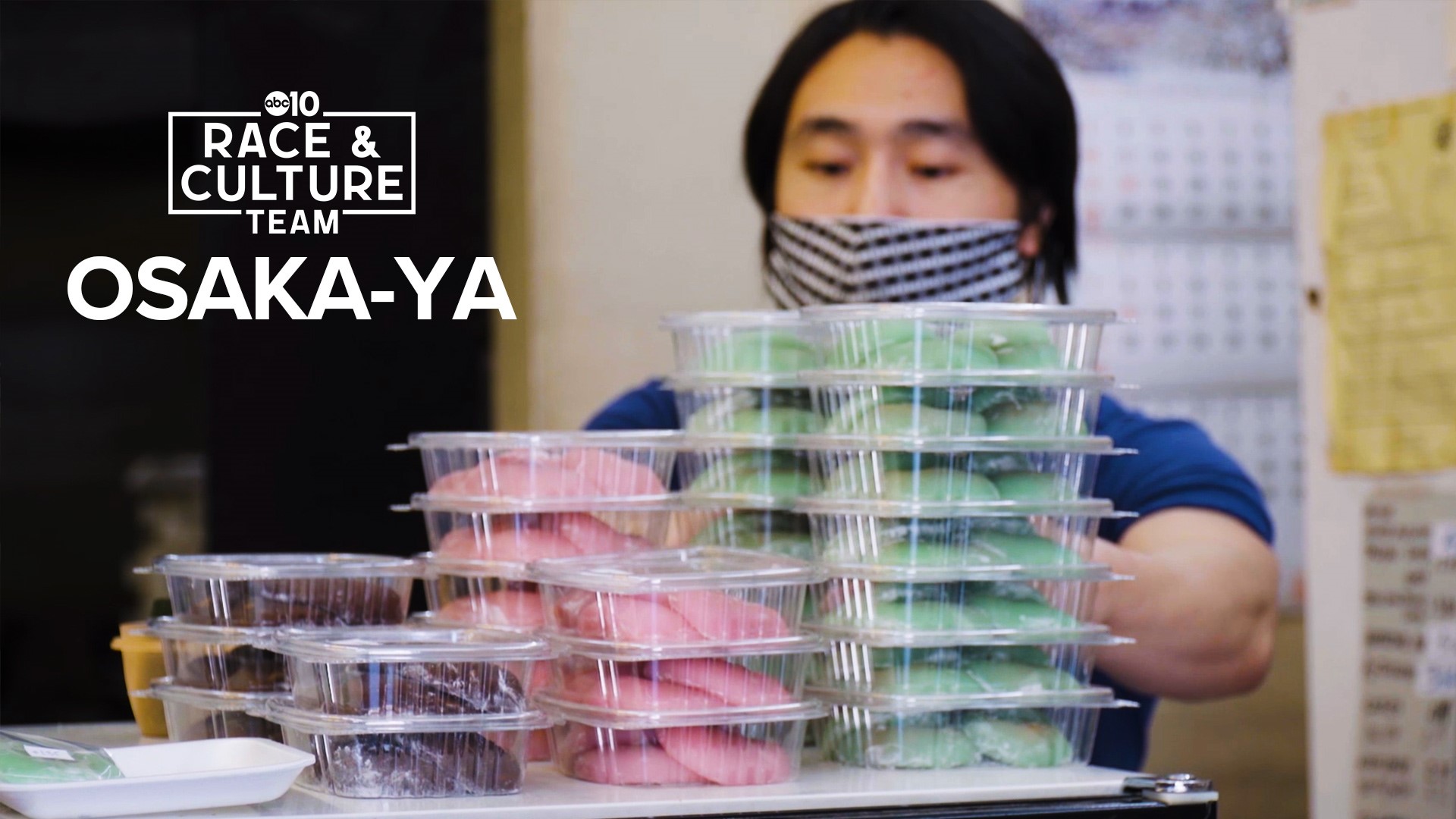SACRAMENTO, Calif. — Mochi is a traditional Japanese snack and Sacramento is home to one of the only handmade mochi kitchens in Northern California. If you follow your nose down 10th Street in Sacramento it may just lead you to the sweet aromas wafting out of the doors at Osaka-Ya Japanese Confectionery shop.
The delicacy everyone is lining up for is called mochi, a popular Japanese treat.
“It’s a snack food. Something you would sit down and drink tea with,” owner Linda Nakatani said.
Osaka-Ya is a family business. Linda Nakatani’s father started in 1963. When he passed away in 2009, she took over and taught her sons David and Yoshio Murakami the recipe.
“Mochi is just rice flour, sugar, and water all mixed up and steamed,” Yoshio Murakami said.
The mochi recipe may sound simple, but the cooking process is far from easy. First, the ingredients are steamed, then it takes a crew of people to mix mochi to the right consistency.
“It’s all labor-intensive. We do have machines that make it but it doesn’t look as good,” Linda said.
Osaka-Ya is one of the few places left in Northern California that still make Mochi by hand.
“I am the only one in Sacramento and they keep saying 'don’t stop' because they can’t get it anywhere else," Linda said.
Some historians estimate Japanese mochi dates as far back a 300 BC. It was a popular snack during tea ceremonies or New Year’s Celebrations. Today, mochi comes in multiple colors and flavors like chocolate and peanut butter, but traditional mochi is often filled with sweet red beans or lima beans.
Mochi is the kind of food you eat with loved ones and it requires a lot of love to make. “All of us, we are like a family. We joke as a family, yell like a family,” Linda said.
Here at Osaka-Ya, mochi is a family tradition, but the tasty treat is a way to introduce the Japanese culture to generations of customers in Sacramento.
“Now, I see a generation, from when I was little, serving them. You know their kids and grandkid. So, I pretty much know all my customers.”
► GET THE RACE AND CULTURE NEWSLETTER: Get more community stories like this in your email with the Race and Culture newsletter. Sign up at www.abc10.com/email
We want to hear from you
For National Asian American and Pacific Islander Heritage Month, what Asian-American or Pacific Islander figure — past or present — should we put a spotlight on? How have they made an impact in your life? Tell us about them.
This project is a part of our newly developed Race and Culture Team. The mission of the Race and Culture Team is to consistently serve people who have been historically overlooked or underrepresented in the media by amplifying their voices through authentic representation, community engagement and in-depth storytelling on all platforms. If you have other suggestions or members of the community you'd like us to highlight, please send an email to our race and culture team lead, Kandace Redd, at kredd@abc10.com.
We may share your response with our staff and publish a selection of stories that could include your name, age, and location. We respect your privacy. Your email address and phone number will not be published and by providing it, you agree to let us contact you regarding your response.
WATCH NEXT: Meet the Stockton organization empowering future generations to reclaim Filipino American history



















